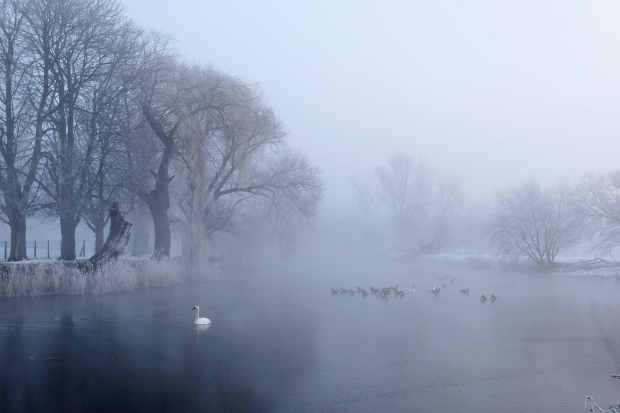We live in disenchanted times. We barely do God, most of us don’t do magic and frenzied consumerism occupies our minds more than any local spirit of place. At first glance it looks as though the supernatural folktales of old — those witches and giants who lend their names to pools or hilltop crags in Britain’s remoter spots — are all but lost.
From this premise, the medievalist Carolyne Larrington examines the stories that characterise some of Britain’s place names, and considers how the mythological patterns of fairy brides and rampaging dragons might have shaped the way our ancestors saw both the places they inhabited and the world at large. These supernatural influences are not limited to the past, as any Game of Thrones enthusiast could tell you, and as Larrington herself demonstrates in a sweep of contemporary culture that includes Irvine Welsh, zombie movies and the Harry Potter books.
It is all fertile material, and The Land of the Green Man is rich in stories and ideas, many of which deserve chapters to themselves. But the danger of covering so much ground — of folklore, of the great British landscape, and of ancient myths creeping back into contemporary culture — is that one runs the risk of getting lost. Nor does the book’s format help: chapters and paragraphs are overlong, and dense with information but generally short on narrative shape.
This is really a collection of British folktales, loosely arranged according to theme — lust and love, death and loss, beast and human — rather than an examination of any specific geographic claim for the old myths. And in any case, many of the tales are, in their various retellings, connected to multiple locations, so that the idea of a story bestowing its unique magic on a particular landscape is lost.
There are flirtations with landscape writing here, some very good. Larrington’s conversational style works a treat when describing a 20th-century encounter with the ‘Black Shuck’, the East Anglian manifestation of the Black Dog myth. Rooting the tales in their place with more than a fleeting mention of where that place is takes the book beyond academic factoid mode and into somewhere more compelling.
Larrington’s talent is as a historian and collector of facts. Her depth of knowledge is most evident when she is tying together disparate strands of the same ancient stories across time and place. She rightly dispatches the myth of the Green Man — that tenuous fantasy of an amateur aristocratic folklorist that somehow hit a common nerve and never went away — and traces the idea of the man of the forest from the wodwose and Gawain’s Green Knight right through to Kingsley Amis’s comic ghost story, in which she finds a latent hostility to medievalism and his erstwhile tutor Tolkien bubbling beneath the mordant humour.
This book is due to be serialised on Radio Four, which will be a fitting medium for it: Larrington’s enthusiasm and exhaustive knowledge give the old tales an anecdotal liveliness.
Perhaps folk tales are simply anecdotes anyway, accounts of people, places and strange meetings that caught on enough to proliferate over time. There is something fitting about treating them in a way that matches their shape-shifting nature, but perhaps it is inevitable that to do so is an unwieldy exercise.






Comments